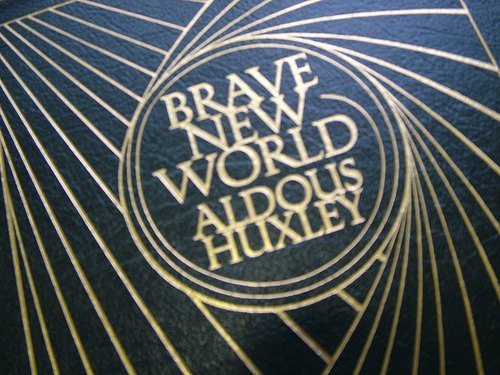Two very important ideals of that have been fought over for centuries and are often in conflict are freedom and happiness.
What is happiness? Moral philosophers have long been asking this question, and John Stuart Mill proposed the concept of higher and lower pleasures. Some sorts of pleasure, such as that derived from reading great literature are more desirable than other sorts of pleasure, such as eating and drinking. Happiness is a quantification of desires, with preference given to higher pleasures.
Freedom can be defined as the ability to dictate one’s own actions.
Both of these are important things to have, and highly valued by most people. But the question arises: which is more important?
Unfortunately, we sometimes have to make that choice. Brave New World paints a picture of a future in which liberty is restricted and voluntarily relinquished in order to maximize happiness. Aldous Huxley makes a compelling argument for happiness.
On the other hand, Benjamin Franklin, one of the great proponents of freedom, said: “They who can give up essential liberty to obtain a little temporary safety, deserve neither liberty nor safety.”
Freedom may seem important, but often it is only so as a means to happiness. Often freedom is chosen over happiness, and this is indeed a wise choice; however, this freedom is used to ensure long-term happiness and is thus far more valuable than a short-term comfort such as safety.
Higher pleasures are not possible without a certain degree of liberty, hence we find ourselves striving for freedom; but, if these higher pleasures did not lie behind it, would freedom not be empty and meaningless?
With the goal of providing the world’s youth exposure, Graphite wishes to foster discussion and debate regarding the various paradoxes on which people lie on different shades of grey. Express yourself in the comments section below!


2 COMMENTS